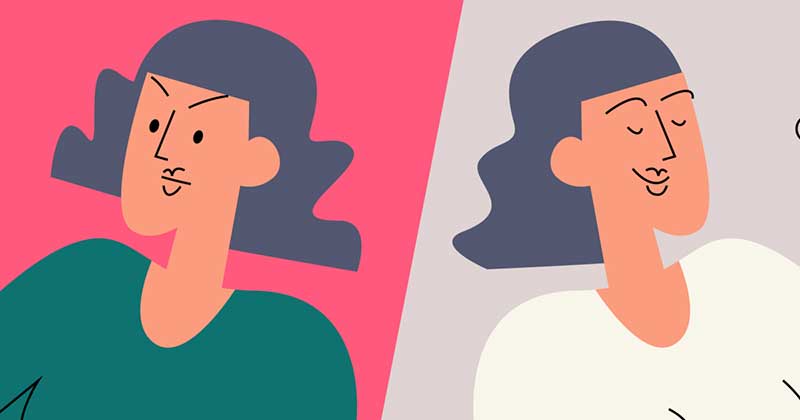Welcome to our informative article on the hormonal changes that occur before your period. Understanding these changes is essential for better navigating the physical and emotional experiences that come with menstruation. In this section, we will explore the specific hormones that drop before your period, shedding light on their role in the menstrual cycle.
Key Takeaways:
- There are specific hormonal changes that happen before your period, which contribute to various physical and emotional symptoms.
- Estrogen is one of the primary hormones involved in the menstrual cycle and its levels decline before menstruation.
- Progesterone also decreases during your period, leading to symptoms such as cramps, fatigue, and mood swings.
- Luteinizing hormone (LH) plays a crucial role in triggering ovulation and preparing your body for menstruation.
- Understanding these hormonal shifts can help you manage and cope with the unique challenges and symptoms that arise during your menstrual cycle.
The Menstrual Cycle: A Hormonal Journey
Before we dive into the specific hormonal changes, let’s take a moment to understand the overall menstrual cycle and how hormones play a crucial role in its various phases. The menstrual cycle is a complex process that prepares your body for potential pregnancy each month.
The cycle begins on the first day of your period and typically lasts for 28 days, although variations are common and perfectly normal. During this time, several hormones work together to regulate the reproductive system and prepare the uterus for a possible pregnancy.
The main hormones involved in the menstrual cycle are estrogen, progesterone, and luteinizing hormone (LH). These hormones fluctuate in levels throughout the cycle, orchestrating the changes in your body.
“The menstrual cycle is governed by a delicate balance of hormonal signals, each playing a vital role in the overall process,” explains Dr. Emily Johnson, a gynecologist at Women’s Health Specialist Clinic.
To better understand how these hormones interact and cause the various stages of the menstrual cycle, let’s briefly explore each phase:
Follicular Phase (Day 1-14)
This is the first phase of the menstrual cycle, starting from the first day of your period. During this phase, the hormone follicle-stimulating hormone (FSH) stimulates the ovaries to develop follicles, each containing an egg.
As the follicles mature, they start producing estrogen. The rising estrogen levels prompt the uterine lining to thicken, preparing for a possible pregnancy.
Ovulation (Day 14)
Approximately on day 14 of the cycle, luteinizing hormone (LH) surges, signaling the release of a mature egg from one of the follicles. This is known as ovulation.
Dr. Johnson explains, “Ovulation marks the peak fertility period, where a released egg can be fertilized by sperm within 12-24 hours.”
Luteal Phase (Day 15-28)
After ovulation, the ruptured follicle transforms into the corpus luteum, a temporary gland that starts producing progesterone. Progesterone prepares the uterus for a potential pregnancy by further thickening the uterine lining.
If pregnancy does not occur, the corpus luteum eventually breaks down, causing estrogen and progesterone levels to drop. The decline in hormone levels triggers the shedding of the uterine lining, resulting in menstruation, and the start of a new cycle.
“Understanding the hormonal journey of the menstrual cycle is key to comprehending the various changes and symptoms that occur during this time,” says Dr. Johnson.
Now that we have a general understanding of the menstrual cycle and the key hormones involved, let’s explore the specific hormonal changes that occur before your period in the following sections.
Estrogen: A Pre-Menstrual Decline
Estrogen is an essential hormone in the menstrual cycle, playing a crucial role in regulating various bodily functions. As your period approaches, estrogen levels undergo significant changes, leading to a decline in its concentration. This decline sets the stage for the start of your menstrual flow and brings about specific effects on your body.
The drop in estrogen levels premenstrually can vary from person to person, but it is generally characterized by a decrease in hormone production from the ovaries. This decline occurs during the late luteal phase of the menstrual cycle, typically in the week leading up to menstruation.
During this phase, the reduced levels of estrogen contribute to several common premenstrual symptoms such as bloating, breast tenderness, and mood swings. Additionally, the decline in estrogen can also lead to changes in energy levels, sleep patterns, and appetite. These hormonal shifts may cause you to feel more fatigued, experience disrupted sleep, or have cravings for certain foods.
It’s important to note that while the decline in estrogen levels is a natural part of your menstrual cycle, the severity of these symptoms may vary from person to person. If you find that your symptoms significantly impact your daily life or well-being, it may be helpful to consult with a healthcare professional for further evaluation and management.
“The decline in estrogen levels leading up to your period can bring about various physical and emotional changes. Understanding these shifts can help you better navigate and manage the symptoms that arise during this phase of your menstrual cycle.”
Effects of Declining Estrogen Levels
The drop in estrogen levels premenstrually can affect different aspects of your body and overall well-being. Here are some common effects associated with declining estrogen:
- Mood changes: Estrogen plays a role in the production and regulation of neurotransmitters in the brain. As estrogen levels decline, it can affect the balance of these chemicals, leading to mood swings, irritability, and feelings of sadness or anxiety.
- Bloating and water retention: Estrogen helps regulate fluid balance in the body. When estrogen levels drop, it can lead to fluid retention, causing bloating and swelling in the abdomen, hands, and feet.
- Changes in skin and hair: Estrogen influences collagen production, skin thickness, and oil production. A decline in estrogen can contribute to drier skin, acne breakouts, and changes in hair texture.
- Disrupted sleep: Estrogen also plays a role in regulating sleep patterns. A decrease in estrogen levels may lead to difficulty falling asleep, frequent waking during the night, or restless sleep.
- Reduced energy: Some individuals may experience decreased energy levels and fatigue as estrogen levels decline. This can make it harder to engage in regular physical activities or maintain higher energy levels throughout the day.
It’s important to remember that while these effects are common, they are not experienced by everyone in the same way. Each person’s hormonal response is unique, and hormonal fluctuations may impact individuals differently.
“As estrogen levels decline premenstrually, it’s normal to experience symptoms such as mood changes, bloating, and changes in skin and hair. Taking care of yourself and implementing self-care practices can help alleviate these symptoms.”
Progesterone: The Drop during Your Period
Progesterone is a crucial hormone in the menstrual cycle, and its levels significantly impact your body during each phase. As your period approaches, progesterone experiences a noticeable decline, triggering various physical and emotional changes.
This drop in progesterone during your period can contribute to common symptoms such as:
- Menstrual cramps: Progesterone withdrawal can lead to increased muscle contractions in the uterus, causing discomfort and pain.
- Breast tenderness: Lower progesterone levels can result in breast sensitivity and inflammation before and during menstruation.
- Mood swings: The progesterone drop can affect neurotransmitters in the brain, leading to emotional fluctuations and irritability.
Understanding the role of progesterone and its decline during your period can help you better navigate these symptoms and manage the impact they have on your overall well-being.
The Role of Progesterone
Progesterone plays a vital role in preparing the uterus for pregnancy. After ovulation, the production of progesterone increases, thickening the uterine lining and creating an optimal environment for potential embryo implantation.
If pregnancy doesn’t occur, progesterone levels decline, triggering the shedding of the uterine lining and the start of your menstrual period. This drop in progesterone is a key factor in the onset of menstruation and the corresponding physical and emotional changes that accompany it.
| Effects of Progesterone Drop during Your Period | Physical Symptoms | Emotional Symptoms |
|---|---|---|
| Menstrual cramps | Breast tenderness | Mood swings |
| Lower back pain | Bloating | Irritability |
| Headaches | Acne flare-ups | Anxiety or depression |
Luteinizing Hormone: Its Pre-Menstrual Role
Luteinizing hormone (LH) is a key player in the menstrual cycle, orchestrating crucial events that prepare your body for menstruation.
Before your period, LH levels go through fluctuations that signal the body to release an egg from the ovaries during ovulation. This surge in LH triggers the final maturation of the egg, making it ready for fertilization by sperm.
In addition to its role in ovulation, LH plays a vital role in stimulating the production of progesterone, another hormone that is central to the menstrual cycle.
Understanding the role of LH in the pre-menstrual phase is crucial for comprehending the hormonal shifts that occur during your menstrual cycle as a whole.
“The surge in luteinizing hormone is essential for ovulation and prepares the body for possible conception. It is a pivotal moment in the menstrual cycle.”

The Importance of LH in Ovulation
During the follicular phase of the menstrual cycle, LH levels gradually rise. As the ovaries release an egg, LH levels experience a significant surge, triggering ovulation. This surge typically occurs about 24 to 36 hours before ovulation.
Once ovulation takes place, the egg travels down the fallopian tubes, where it may be fertilized by sperm. If fertilization does not occur, the egg will disintegrate, leading to the subsequent shedding of the uterine lining during menstruation.
Stimulating Progesterone Production
While LH is primarily responsible for triggering ovulation, it also stimulates the production of progesterone. After ovulation, the follicle from which the egg was released transforms into a structure called the corpus luteum.
The corpus luteum produces and releases progesterone, a hormone that prepares the uterus for implantation and supports early pregnancy. Without the surge in LH, the corpus luteum wouldn’t form, and progesterone levels would not be sufficient to support pregnancy.
| LH Levels | Role in the Menstrual Cycle |
|---|---|
| Low | The follicular phase, leading up to ovulation |
| Surge | Indicates impending ovulation |
| Low | The luteal phase, supporting potential pregnancy |
Effects of Hormonal Shifts on Your Body
Now that we have discussed the specific hormonal changes before your period, let’s take a closer look at the effects of these shifts on your body. Hormonal fluctuations during your menstrual cycle can have a significant impact on your overall well-being, both physically and emotionally.
Physical Symptoms
Hormonal changes before menstruation can lead to various physical symptoms that may vary from person to person. Some common physical symptoms include:
- Bloating: Many individuals experience bloating due to water retention caused by hormonal imbalances.
- Breast Tenderness: Hormonal shifts can cause breast tissue to be more sensitive and tender, resulting in discomfort.
- Cramps: Menstrual cramps, or dysmenorrhea, may occur as a result of uterine contractions triggered by hormonal changes.
- Fatigue: Fluctuating hormone levels can contribute to feelings of fatigue and reduced energy levels.
Emotional Changes
Hormonal changes before menstruation can also impact your emotions and mood. It’s not uncommon to experience emotional changes and mood swings during this time. Some emotional symptoms include:
- Mood Swings: Hormonal fluctuations can cause sudden shifts in mood, leading to feelings of sadness, irritability, or anxiety.
- Irritability: Increased sensitivity and hormonal changes may make you more prone to irritability and frustration.
- Anxiety: Hormonal imbalances can contribute to heightened anxiety levels and feelings of unease.
“Understanding the effects of hormonal shifts on your body can help you navigate the physical discomfort and emotional changes that come with your menstrual cycle.”
It’s important to remember that the extent and intensity of these symptoms can vary from person to person. If you find that hormonal changes significantly impact your daily life or overall well-being, it may be helpful to consult with a healthcare provider who can provide guidance and support.
Conclusion
In this final section, we have explored the hormonal shifts that occur before your period, shedding light on the specific hormones that drop and fluctuate during this time. By understanding the changes in estrogen, progesterone, and the role of luteinizing hormone, you gain valuable insight into the intricate hormonal dance that takes place within your body during the menstrual cycle.
Being aware of these hormonal changes is essential as it enables you to better navigate the unique challenges and symptoms that may arise. From physical discomforts like bloating and breast tenderness to emotional fluctuations such as mood swings and irritability, understanding the underlying hormonal shifts can empower you to take proactive steps towards managing and alleviating these symptoms.
Armed with this knowledge, you can create a healthier and more comfortable menstrual experience for yourself. Whether it’s through self-care practices, adopting a balanced diet, or seeking professional guidance, recognizing the impact of hormonal changes before menstruation allows you to make informed decisions that promote your overall well-being.
FAQ
What hormones drop before your period?
The hormones that drop before your period include estrogen and progesterone. These hormonal changes play a significant role in the physical and emotional symptoms experienced during this time.
What are the hormonal changes that occur before menstruation?
Before menstruation, there is a decline in estrogen and progesterone levels, while luteinizing hormone (LH) levels fluctuate. These hormonal changes prepare your body for menstruation and can lead to various symptoms.
How do estrogen levels change before your period?
Estrogen levels decline before your period, contributing to symptoms like bloating, breast tenderness, and mood swings. Understanding these changes can help you better manage your menstrual experience.
What happens to progesterone levels during your period?
Progesterone levels drop during your period, which can lead to symptoms like fatigue, irritability, and anxiety. It is essential to recognize these hormonal changes to better care for your well-being.
How does luteinizing hormone (LH) affect your menstrual cycle?
Luteinizing hormone (LH) surges before ovulation and helps prepare your body for menstruation. Understanding the role of LH can provide insights into the hormonal shifts that occur during your menstrual cycle.
What effects do hormonal shifts have on your body?
Hormonal shifts before your period can lead to physical symptoms like bloating, cramps, and breast tenderness. They can also contribute to emotional changes such as mood swings, irritability, and fatigue. Being aware of these effects can help you manage your menstrual cycle more effectively.
How can understanding hormonal changes before your period help?
By understanding the hormonal changes before your period, you can gain insights into the unique challenges and symptoms that arise during this phase of your menstrual cycle. This knowledge can empower you to take better care of your physical and emotional well-being.














Got a Questions?
Find us on Socials or Contact us and we’ll get back to you as soon as possible.